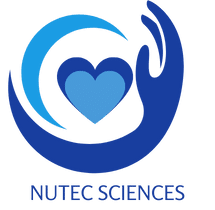How Can Equine-Assisted Therapy Improve Emotional Well-Being in Individuals with PTSD?

Equine-assisted therapy, an innovative approach to mental health treatment, employs horses to help individuals grapple with psychological challenges. This article will explore how this therapy can serve as an effective means of improving emotional well-being among individuals suffering from Post-Traumatic Stress Disorder (PTSD). We will delve into the therapeutic benefits of this unique form of therapy, backed by leading scholars, scientific research, and real-life anecdotes.
The Science Behind Equine-Assisted Therapy
Equine-assisted therapy, a form of therapy involving horses, has seen significant exploration within the scientific community. Scholars have found an array of benefits associated with this method, including improvements in physical, mental, and emotional health.
A voir aussi : What Role Does Spiritual Well-being Play in the Overall Health of Terminally Ill Patients?
Dr. Karolyn Snyder, a scholar who has extensively researched this form of therapy, found that interacting with horses can help alleviate symptoms of anxiety, depression, and PTSD. Her work, available on Google Scholar, involves in-depth analysis of the emotional connections that form between horses and individuals during therapy.
Horses are attuned to human emotions, which can create a reciprocal bond of trust and empathy. This bond aids in the therapeutic process, enabling individuals to explore their feelings in a safe and accepting environment.
Sujet a lire : How Does Regular Social Interaction Influence Cognitive Health in the Elderly?
Equine-Assisted Therapy and Mental Health
In the realm of mental health, equine-assisted therapy has shown remarkable results. Horses can elicit a calming effect, which enables individuals to confront traumatic experiences and emotions they might otherwise avoid.
A study published in the Journal of Clinical Psychology (doi: 10.1002/jclp.22568) found that veterans diagnosed with PTSD showed significant reductions in symptoms after participating in equine-assisted therapy. The therapy provided a unique, calming environment that conventional therapy could not offer.
Moreover, equine-assisted therapy can aid in reducing anxiety. CrossRef, a leading citation linking service, has a plethora of articles demonstrating the positive impact of equine therapy on anxiety disorders.
The Role of Horses in Therapy
The therapeutic role of horses cannot be overstated. Their large and intimidating stature demands respect, while their gentle and intuitive nature fosters a nurturing environment. As a result, individuals are often able to break down barriers and address deep-rooted issues during sessions.
When individuals care for horses—feeding them, grooming them, leading them—it can help instill a sense of responsibility and purpose. Over time, this can build self-esteem and confidence, which are crucial in overcoming PTSD.
Moreover, horses respond to non-verbal cues, which can encourage individuals to become more aware of their emotional state and body language. This heightened awareness can lead to better understanding and management of one's emotions.
Equine-Assisted Therapy: A Physical and Emotional Journey
Equine-assisted therapy is not just about emotional healing—it's also about physical engagement. The simple act of grooming a horse can be a soothing and meditative experience, while horseback riding can serve as a form of physical therapy.
The physical benefits of equine-assisted therapy can complement the emotional healing process. For instance, research has shown that physical exercise can alleviate symptoms of depression and anxiety. Therefore, the combination of physical activity with emotional therapy can provide a holistic approach to mental health treatment.
Conclusion:
In conclusion, equine-assisted therapy offers a promising alternative for individuals struggling with PTSD and other mental health disorders. From scientific research to real-life success stories, the evidence underscores the immense potential of this innovative approach. While traditional forms of therapy remain effective, equine-assisted therapy adds a new dimension to treatment—one that can truly change lives.
While this form of therapy might not be suitable for everyone, it unquestionably has a place in the mental health field. As more research is conducted and more stories are shared, hopefully, more individuals will be able to benefit from the healing power of horses.
In the end, the goal of therapy—whether it's conducted in an office or a stable—is to improve the individual's quality of life. And for many, equine-assisted therapy seems to be doing just that.
Trauma Processing Through Equine-Assisted Therapy
Equine-assisted therapy is proving to be a valuable tool for processing trauma, particularly for individuals grappling with PTSD. The unique bond that is forged between a human and a horse during these therapy sessions can facilitate the process of emotional regulation, a crucial element in the journey towards mental well-being.
A study published in the Journal of Traumatic Stress Disorders & Treatment (DOI: 10.1177/1534765617S00316) highlighted the benefits of equine-assisted therapy for veterans with PTSD. The study found that the therapy was effective in helping veterans cope with symptoms such as flashbacks, nightmares, and severe anxiety.
The interaction with horses facilitates a process called 'grounding', a technique often used in trauma therapy. Grounding helps individuals stay anchored in the present moment, thereby decreasing the power of traumatic memories.
Horses, as prey animals, are highly sensitive to their surroundings and are constantly hyperaware of their environment. This natural alertness and sensitivity can help individuals with PTSD to develop their own sense of awareness and presence. Over time, this aids in reducing the frequency and intensity of PTSD symptoms.
Additionally, the process of caring for a horse—grooming, feeding, and leading—requires focus and emotional engagement. This involvement can serve as a distraction from intrusive thoughts and provide a sense of calm and purpose.
Holistic Healing: Equine-Assisted Psychotherapy
Equine-assisted activities go beyond traditional therapy by promoting both physical engagement and emotional healing. Horseback riding, for example, is a form of physical exercise that can enhance balance, coordination, and strength. A study available on Google Scholar has shown that physical exercise can help reduce symptoms of depression and anxiety. As such, horseback riding can complement the emotional healing that equine-assisted psychotherapy promotes.
Moreover, interacting with horses encourages individuals to communicate non-verbally. Horses respond to body language and non-verbal cues, which can be therapeutic for individuals who struggle with verbal communication due to their PTSD.
In equine-assisted psychotherapy, horses serve as mirrors to the individual's emotional state. They can provide immediate feedback and reflections on the emotions and behaviors of individuals, helping them gain insights into their own emotional states and patterns.
Through this, individuals can learn more about their emotional regulation, a significant element in managing the symptoms of PTSD. Learning to regulate emotions can positively impact an individual's well-being and contribute to their recovery journey, making equine-assisted therapy a holistic and comprehensive approach to mental health treatment.
Equine-assisted therapy is an innovative and promising approach to improving emotional well-being in individuals with PTSD. Empirical evidence, as well as anecdotal accounts, clearly demonstrate the immense benefits equine therapy can offer.
By combining physical activity with emotional therapy, this approach provides a holistic and comprehensive treatment that goes beyond traditional methods. Whether it's through caring for a horse or engaging in horseback riding, individuals are given the opportunity to heal both physically and emotionally.
While it may not be the answer for everyone, equine-assisted therapy unquestionably has its place in the mental health field. As more research surfaces and more success stories are shared, it's our hope that more individuals suffering from PTSD will benefit from the healing power of equine therapy.
In the end, the ultimate goal of any form of therapy is to enhance the quality of life for the individual. And for many, equine-assisted therapy has been a crucial part of their journey towards improved mental health and overall well-being.
